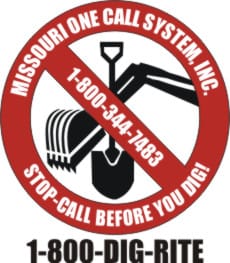Collection System
Think before you flush…
There are several ways you can reduce the likelihood of stoppages in your private sewer lines and your neighborhood’s main lines. Most sewer line obstructions are caused by grease, tree roots and debris. The simplest way to prevent these materials from blocking your lines is to keep them out of your lines.
Oil, Fats and Grease are some of the primary causes of blockages in sanitary sewer collection systems.
Often times people dispose of grease in the kitchen sink. When grease cools it lines the pipes and the opening in the pipes get smaller and smaller until finally there is a blockage and sewer backs up in people’s homes or it comes out of a manhole or cleanout and pollutes the environment.
Do not pour grease down the drain. Dispose of it in the trash.

The Jefferson County Public Sewer District collection system is made up of pipelines designed to gather domestic waste (sewage), from homes and businesses and convey it to the wastewater treatment plant.
Flushing Items that belong in landfills can clog toilets, drains and lateral lines that connect your property to the main public sewer line. These non-biological items eventually end up in the wastewater treatment plant. The accumulation of these items will cause blockages and interfere with daily operations. This ultimately increases the cost to the consumer through increased maintenance, excessive wear and tear on equipment and man hours.
The wastewater treatment plant is designed to treat domestic waste using mechanical and biological methods. Domestic waste is considered the waste type typically discharged from a residential household. However, domestic waste does not include these pollutants, including but not limited to, pesticides, prescription medications, paint, paint thinners, feminine hygiene products, diapers, sanitary wipes, towels, razors, dental floss or plastics of any kind.
Most businesses also fall into the domestic waste discharge category with a very small percentage discharging non-domestic waste (pollutant) or utilizing a process that has the potential to harm the sewer system. Examples of these pollutants, including but not limited to, the discharge of gasoline, paint, Fats, oil, grease or solvents.
Please don’t flush or pour these items down your drains. Let’s work together to save the environment.


